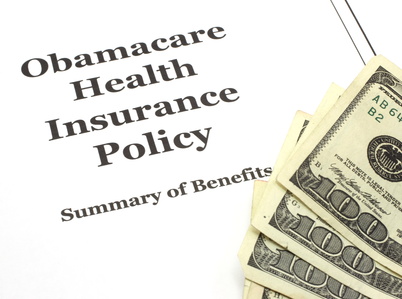
by Bill Paquin
With medical costs skyrocketing over the last several years, educating oneself about the ins and outs of the American healthcare system has never been more important. That is especially true given the recent enactment of the Patient Protection and Affordable Care Act (PPACA), or “Obamacare,” which calls for a substantial overhaul of our nation’s healthcare system.
While media coverage about the PPACA has focused on the provisions of the law intended to expand healthcare coverage and offset medical costs for lower income individuals, it’s becoming clear that those provisions have implications at every economic level.
Many Americans, particularly the wealthy, will join in paying that price in the form of newly enacted taxes and other financial changes, some of which are described below.
Changes to Rules for FSAs
Taxpayers who take advantage of flexible savings accounts (FSA), which permit employees to contribute pre-tax funds to an account to be used for doctor visits, prescriptions and other medical expenses, may reconsider their medical insurance plan based on how the PPACA impacts them.
Under the PPACA, employees can contribute no more than $2,500.00 on a tax-free basis to an FSA. The new law also imposes stricter rules governing how funds in an FSA can be used, including a prohibition on using FSA monies for over the counter medicines or supplies that are not expressly prescribed by a physician.
Violation of any of these new regulations will result in penalties, which will further help fund the operation of the PPACA.
Increase in Threshold for Deductions for Medical Expenses
Prior to the enactment of the PPACA, taxpayers could use medical expenses as an income tax deduction if those expenses exceeded 7.5% of their adjusted gross income.
That percentage increased for the tax year 2013 under the PPACA, so now the medical expense deduction is only available if your medical expenses exceed 10% of your adjusted gross income.
Penalty for Uninsured Individuals
The PPACA imposes a financial penalty on people who refuse or otherwise fail to obtain health insurance.
However, those in lower income households will receive a tax credit to assist in paying for a policy.
Increased Payroll Tax for High Income Individuals
Most Americans have 1.45% of their income taxed for Medicare; however, under the PPACA, individuals earning $200,000.00 or more and married couples earning $250,000.00 or more now pay 2.35% toward Medicare.
Those individuals have already started to feel the pinch of this new development, as the tax increase took effect as of January 1, 2013.
Increase on Medicare Tax for Investment Income
Individuals earning $200,000.00 or more and married couples earning $250,000.00 are the target of another provision of the PPACA focused on investment income. These taxpayers will pay an additional 3.8% Medicare tax on either (1) their net investment income or (2) their modified adjusted gross income (less the $200,000.00 for individuals or $250,000.00 for married couples), whichever is less.
To minimize the impact of this provision, some tax advisers are currently recommending that their clients transfer investments into municipal bonds or rental properties, where cash flow isn’t a problem and most of the gain gets offset by depreciation.
One bit of good news: speculation about the far-reaching effect of this 3.8% tax has been grossly exaggerated. Mass emails, Facebook posts, and internet chatter have all perpetuated a rumor that the PPACA will result in a 3.8% federal tax on the sale of one’s primary residence.
In reality, the 3.8% tax will only apply to the sale of a piece of real estate that served as an individual’s primary residence for two out of the previous five years if there is a gain of more than $250,000.00. The amount is $500,000.00 for married couples.
Even though the real estate market in most parts of the country is rebounding, the vast majority of home sellers won’t be affected by this aspect of the law.
Penalty for Employers Not Insuring Employees
Just as individuals will be penalized for not obtaining insurance, under the PPACA employers with fifty or more employees will pay a fine for failing to adequately insure their employees.
Depending on the size of the company, this penalty could sting.
Some employers that violate this policy would pay as much as $2000 per employee after the first 30 employees on the payroll. Still, this would likely still be less expensive than providing insurance, so its effectiveness is, as of yet, unclear.
Excise Tax on Medical Devices
The PPACA will subject some medical and dental devices to a 2.3% sales tax, and estimates suggest that as many as 180,000 different items will fall into this category of taxable devices.
However, there is an exception for retail items, such as eyeglasses and hearing aids, which are not taxed.
While there are many benefits from the PPACA, Obamacare will have a financial impact on different people in different ways. However, educating yourself is the best way to maximize the benefits and minimize the burden on you and your pocket book.
(Bill Paquin is the Chief Executive Officer at Vertical Health, a publisher focused on improving patient care for chronic pain sufferers and those with endocrine system disorders. He operates multiple health information websites including Spine Universe, EndocrineWeb and Diabetic Lifestyle. Bill is a husband, father, blogger and chronic pain sufferer who supports the creative destruction of our current healthcare system.)


